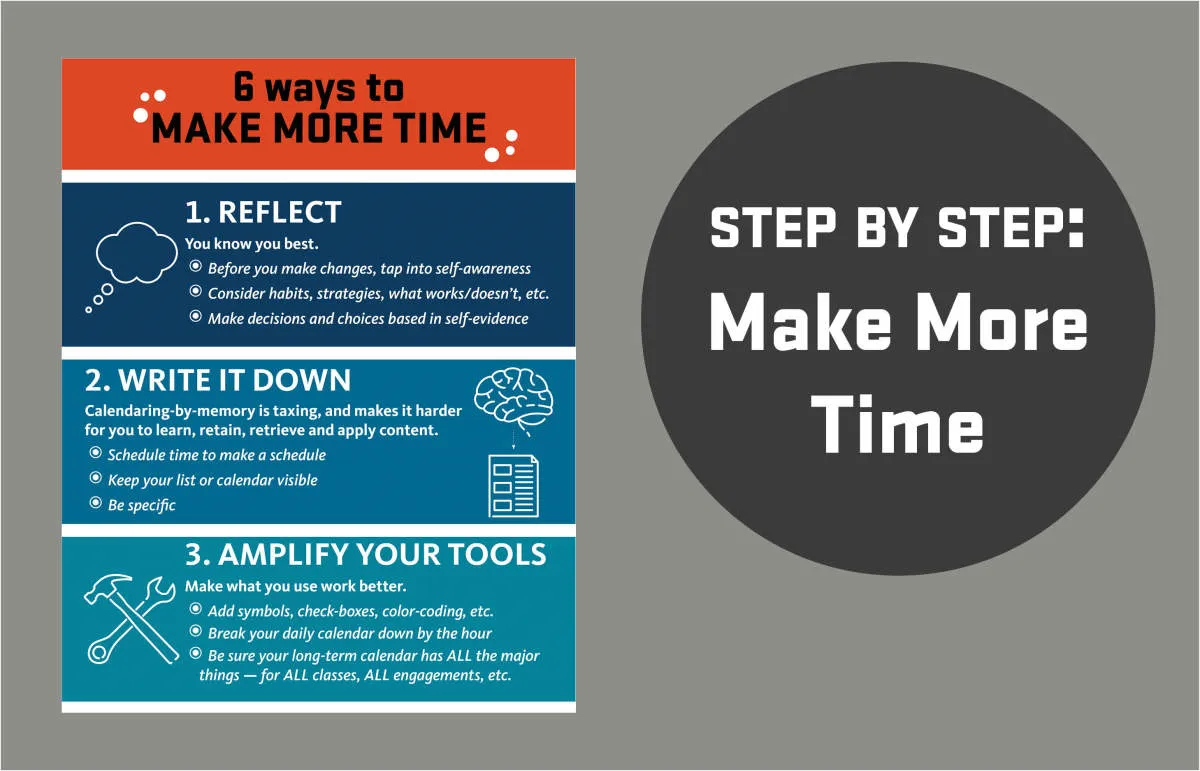In the fast-paced and demanding environment of U.S. universities, mastering time management is crucial for success. This article explores effective strategies that can help students navigate their academic and personal responsibilities with efficiency and achieve their goals.
Creating a Daily Schedule
Time management is crucial for success in U.S. universities. One effective way to stay organized and optimize your productivity is by creating a daily schedule. Developing a well-structured routine can help you balance your academic responsibilities, extracurricular activities, and personal life.
1. Prioritize Your Tasks
Start by identifying your most important tasks for the day. Consider deadlines, upcoming exams, and any other commitments you have. Prioritize these tasks to ensure they receive your focus and attention.
2. Set Realistic Goals
Avoid overwhelming yourself with an unrealistic schedule. Set achievable goals for each day, considering the time required for each task. Break down larger projects into smaller, manageable tasks to make them less intimidating.
3. Allocate Time Slots
Assign specific time slots for each task on your schedule. Be mindful of your natural rhythms and energy levels during the day. Schedule challenging and important tasks during your peak productivity hours.
4. Include Breaks
Remember to incorporate regular breaks into your schedule. Taking short breaks can help refresh your mind and increase your overall productivity. Use this time to stretch, hydrate, or engage in activities that relax you.
5. Avoid Procrastination
Be disciplined in sticking to your schedule. Avoid the temptation to procrastinate or get distracted. Set specific time limits for tasks and hold yourself accountable to complete them within the allocated time.
6. Be Flexible
While having a structured schedule is important, it’s also crucial to be flexible. Unexpected events or changes may arise, requiring adjustments to your plan. Adaptability is key to maintaining balance and managing your time effectively.
7. Evaluate and Adjust
Regularly evaluate your schedule to assess what’s working and what needs improvement. Identify any inefficiencies or areas where you could better allocate your time. Adjust your schedule accordingly to optimize your productivity.
By creating a daily schedule and following it consistently, you can master time management and increase your chances of success in U.S. universities. Prioritizing tasks, setting realistic goals, and maintaining discipline will help you stay organized and make the most of your time.
Prioritizing Tasks

In order to successfully manage your time in U.S. universities, it is crucial to prioritize your tasks effectively. Prioritization allows you to focus on the most important and urgent tasks first, ensuring that you make the most of your time and meet your deadlines.
Here are some strategies to help you prioritize your tasks:
- Set clear goals: Start by identifying your short-term and long-term goals. This will help you determine which tasks are most relevant and need to be prioritized.
- Break tasks into smaller parts: Large tasks can be overwhelming and make it difficult to prioritize. By breaking them down into smaller, more manageable tasks, you can prioritize each part individually.
- Use a task management system: Whether it’s a to-do list, a digital planner, or a project management tool, find a system that works for you. Organize tasks based on deadlines, importance, or urgency to stay on top of your priorities.
- Evaluate urgency and importance: Not all tasks are equal. Assess the urgency and importance of each task to determine its priority. Urgent and important tasks should be prioritized over those that are less time-sensitive or have lower significance.
- Learn to delegate: It’s important to recognize when you can delegate tasks to others. Delegating tasks not only helps lighten your workload but also allows you to focus on higher-priority tasks.
- Practice time blocking: Time blocking involves allocating specific time slots for different tasks or activities. This technique can help you prioritize tasks and ensure that you dedicate enough time to each one.
By implementing these strategies, you can effectively prioritize your tasks and improve your time management skills in U.S. universities.
Using Time-Tracking Tools
In today’s fast-paced and demanding academic environment, mastering time management is crucial for success. One effective strategy that can help students stay organized and make the most of their time is the utilization of time-tracking tools.
Time-tracking tools are software or applications that allow students to monitor and analyze how they allocate their time. These tools offer various features to assist with scheduling, prioritizing tasks, and tracking progress. Here are some advantages of incorporating time-tracking tools into your daily routine:
1. Enhanced Productivity
By using time-tracking tools, students gain a better understanding of how they spend their time. This knowledge enables them to identify potential time-wasting activities and focus on tasks that are more important and valuable.
2. Effective Planning
With time-tracking tools, students can create detailed schedules and allocate time for specific assignments, classes, studying, and leisure activities. This helps in creating a well-balanced routine and ensures that important tasks are not overlooked.
3. Time Awareness
Time-tracking tools provide a visual representation of how time is being utilized. This awareness motivates students to stay focused and complete tasks within the allotted time, leading to better time management and improved efficiency.
4. Performance Evaluation
These tools generate reports and analytics that enable students to evaluate their productivity and progress over time. By analyzing this data, students can identify patterns, make adjustments, and optimize their time management strategies for better academic performance.
In conclusion, implementing time-tracking tools into your daily routine can greatly enhance your time management skills. By utilizing these tools effectively, students in U.S. universities can stay organized, keep track of tasks, and allocate their time wisely, leading to increased productivity and academic success.
Effective Time Blocking Techniques
Time management is crucial for success in U.S. universities. To master time management, it is essential to utilize effective time blocking techniques. By implementing these strategies, students can optimize their productivity and accomplish their goals efficiently.
1. Prioritize your tasks:
Start by identifying the most important tasks that need your immediate attention. Make a to-do list and rank them in order of importance. This will help you allocate your time effectively and focus on the tasks that matter the most.
2. Break down your schedule:
Divide your day into blocks of time dedicated to specific activities or subjects. Assign fixed time slots for studying, attending classes, completing assignments, and other commitments. By structuring your day, you can ensure that you devote sufficient time to each task.
3. Avoid multitasking:
While it may seem efficient, multitasking often leads to decreased productivity and increased errors. Instead, focus on one task at a time during each time block. This way, you can give your full attention to the task, complete it effectively, and move on to the next activity.
4. Take regular breaks:
Working without breaks can lead to burnout and fatigue. To maintain productivity, include short breaks between your time blocks. Use these breaks to relax, recharge, and prepare for the next task. Taking regular breaks can enhance focus and prevent mental exhaustion.
5. Minimize distractions:
Avoid distractions such as social media, notifications, or irrelevant websites during your time blocks. Keep your phone on silent mode and out of reach. Utilize website blockers or time management apps to stay focused and minimize the chances of getting distracted.
6. Review and adjust:
Regularly review your time blocking schedule to evaluate its effectiveness. Analyze whether you were able to complete tasks within the designated time. Make adjustments wherever necessary to improve your productivity and time management skills.
Implementing effective time blocking techniques can significantly enhance your time management skills and academic performance in U.S. universities. By prioritizing tasks, structuring your schedule, avoiding multitasking, taking breaks, minimizing distractions, and reviewing your progress, you can become a master of time management.
Conclusion
In conclusion, mastering time management is crucial for success in U.S. universities. By implementing effective strategies such as setting goals, prioritizing tasks, and minimizing distractions, students can effectively manage their time and improve their academic performance. It is important for students to create a healthy balance between their studies and personal life to maintain overall well-being during their university years.
